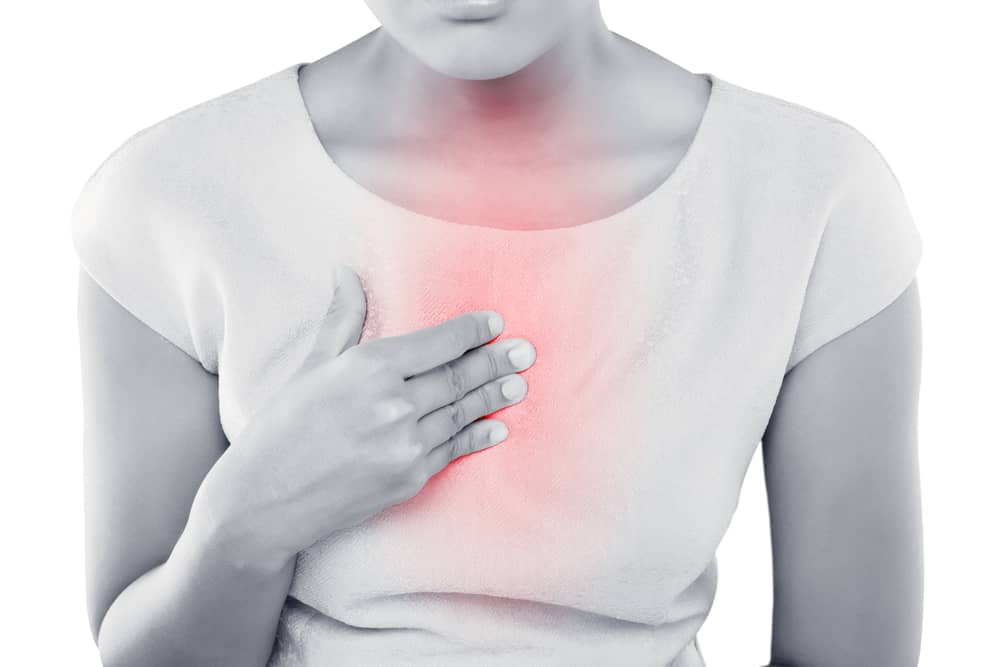
What is Heartburn?
GERD (heartburn) can be scary if you are not aware of what is happening. So what exactly is it? Heartburn is a burning in the chest and may occur after you eat when you lie down or in the evening. If it happens occasionally, that is considered common and nothing to really worry about. With over-the-counter medications and a change in lifestyle, most people are able to manage heartburn on their own. If you find yourself suffering from heartburn on a regular basis, please see your physician to see if it might be a more serious condition that may require medical care.
Signs and Symptoms of Heartburn
- Burning in the chest that may get worse after you eat, when you lie down, or at night
- Symptoms do not get better when you take over the counter medication
- A bitter, acid-like taste in your throat or mouth
Is Heartburn a Sign of Esophageal Cancer?
The rate of esophageal cancer is continuing to rise because cases of gastroesophageal reflux disease, or GERD, are also on the rise. GERD is a digestive issue where stomach acid irritates the esophagus. GERD sufferers may develop significant health problems which may include esophageal cancer. Identifying cancer early can greatly improve patient outcomes.
Does Acid Reflux (GERD) Lead to Esophageal Cancer?
GERD is a risk factor that may lead to esophageal cancer. When acid in the stomach that is used to help you digest food escapes into the esophagus, this is an example of GERD. You may also have heard it referred to as “reflux or acid reflux”. Sometimes people with GERD experience pain in the chest or heartburn, but in other cases, people may feel nothing at all.
If you do have GERD, there is a slightly higher risk you may develop esophageal cancer and the risk is higher if you experience these symptoms regularly or have chronic acid reflux. Keep in mind that GERD is very common and the majority of people do not end up developing esophageal cancer.
Screening and Diagnosis
If you experience symptoms related to GERD and acid reflux regularly, see your doctor who may screen you for esophageal cancer. A medical history and discussion of your symptoms and risk factors will be done before the doctor examines you for possible esophageal cancer symptoms. More testing will be done if it is suspected you may be at risk.
There are a variety of tests your physician may order to determine if you have esophageal cancer. They might include:
- A barium swallow test is where you will swallow a liquid to coat the walls of the esophagus. When x-rays are performed, the liquid outlines the esophagus allowing the physician to examine abnormal areas.
- A CT scan takes x-rays to see if cancer has spread to other organs or your lymph nodes. You may be asked to drink something before this test also in order to outline your esophagus.
- An MRI uses radio waves and magnets instead of x-rays and can determine if cancer has spread.
- A PET scan involves injecting a form of sugar into the blood and will collect in cancer cells. The cells will then become radioactive and can be seen using a special camera.
- An endoscopy is when the doctor inserts a thin tube with a video camera on it into your throat so they can look for abnormalities.
- Biopsies are conducted when suspicious tissue is discovered using one of the above-mentioned techniques. The tissue will be sent to the lab to be tested for cancerous cells.
- Blood tests will measure different cells in your body that may indicate cancer.
When Should You See a Doctor?
If you experience severe chest pain pressure, please seek immediate help as symptoms may mean you are having a heart attack. If you experience any of these following symptoms, please contact your doctor to schedule an appointment.
- You have heartburn more than twice a week
- Symptoms do not go away even after taking over the counter medication
- Difficulty swallowing, vomiting or persistent nausea
- If you experience weight loss because you are having trouble eating
Please contact us if you have any questions or concerns regarding heartburn and GERD. We are here to provide you with answers, diagnose problems, and create a treatment plan specifically designed for you.
Resources:
https://www.cancer.org/cancer/esophagus-cancer/causes-risks-prevention/risk-factors.html
https://www.cancer.gov/types/esophageal
https://www.ncbi.nlm.nih.gov/pmc/articles/PMC3705136/

